After accompanying Ang Lee (李安) to film festivals and on promotional campaigns in the US for many years, producer Hsu Li-kong (徐立功) could not have been happier about the trip he made recently for the film Crouching Tiger, Hidden Dragon (臥虎藏龍).
The film won two major awards at the Golden Globe Awards in February and Hsu and Lee were swarmed by movie fans even at a small Chinese restaurant in New York. "That was the first time American fans requested an autograph from me. People even grabbed paper napkins from the restaurant, asking us to sign on it" he said.
And tonight (Los Angeles time), Hsu and his Zoom Hunt International (縱橫國際影視公司) will be crossing their fingers in hopes of winning Taiwan's first Best Foreign-language Film Award at the 73rd Annual Academy Awards in Beverly Hills.
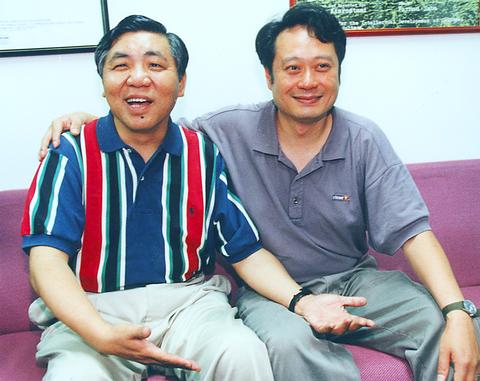
PHOTO COURTESY OF ZOOM HUNT INTERNATIONAL
The last time Hsu could look forward to the same possibility for fame was for Eat Drink Man Woman (飲食男女) in 1995, also a film by Lee, and his chances of winning then were slimmer than they are this year.
Hsu has been the producer of all of Lee's Chinese-language films since Lee's first feature Pushing Hands (推手, 1990). Needless to say, the trust and fellowship between the two have grown ever since.
"There are many things in life that come out of feelings of affinity. Me and Ang Lee usually don't spend long discussing scripts. I know what kinds of stories he's getting at. And he also takes my advice. He even tells me we can keep our international phone calls short while discussing projects because we have such strong mutual understanding and trust," said Hsu.
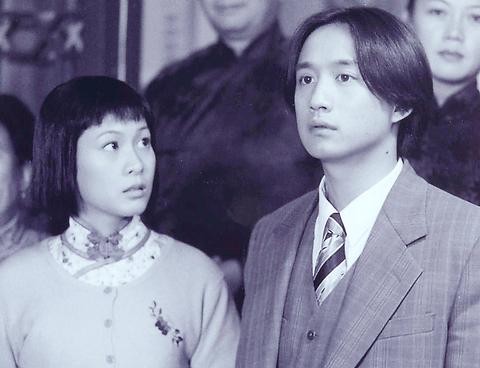
PHOTO COURTESY OF CMPC
Hsu, 60, is often called Boss Hsu (徐老闆), a nickname that fits his old-hand status in Taiwan's film production.
He met Lee while working as a production manager at the Central Motion Picture Corporation (中央電影公司, CMPC), Taiwan's premiere film company which is an asset enterprise of the KMT.
At that time Hsu had promoted a policy at the company to promote new and young filmmakers, Hsu said. Lee was one of the first beneficiaries of this policy.
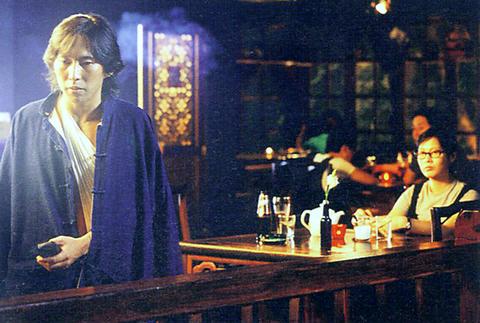
PHOTO COURTESY OF CMPC
"At that time I'd never seen his New York University student works and I knew very little about his filmmaking style. I just found him a decent man with a dream to make films, and had waited for seven years for a chance," recalled Hsu, saying the 39-year-old Lee felt immediately like an old friend to him.
Hsu persuaded the investors of CMPC and recommended some Taiwanese actors to Lee for the making of the director's first feature film Pushing Hands. And then he let Lee shoot the film in the US. Lee merely asked of Hsu that the money always be remitted promptly. "Afterward, I went to New York to see the first-cut, and was immediately intrigued. Lee made the story full of wit and humor," he said.
Hsu later went to Lee's home in up-state New York. It was a modest home and he noticed the absence of a dinning table. Lee said: "I used the table for the film. [Actor] Lang Hsiung (郎雄) broke the table with his kung-fu in the film," Hsu recalled Lee saying.
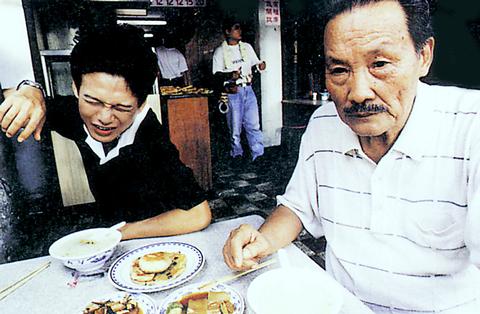
PHOTO COURTESY OF CMPC
"He really is a frugal man. And I regret I didn't find more funds for that film," said Hsu.
But, as a film producer, Hsu's fellowship with Lee was not merely built on compassion for the director's fundraising plight. It is based more on their respective zeal for the artistic expression of drama.
"Lee is best at delving into humanism and human emotions and expressing these in the form of drama," Hsu said. And surely, Hsu's own passion for drama helped identify the talent in Lee.
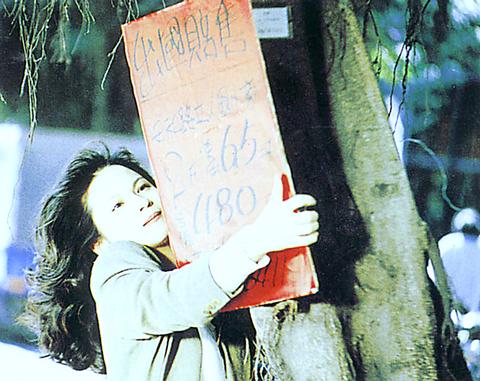
PHOTO COURTESY OF CMPC
Apart from producing Lee's films, Hsu also has several successful films and TV works under his belt, including The Personals by Chen Kuo-fu (陳國富) and the TV drama series April Rhapsody (人間四月天). The latter, a story about romantic poet Hsu Chih-mo (徐志摩) in early 20th century, was so popular in Taiwan it propelled its two main figures Huang Lei (黃磊) and Regina Liu (劉若英) to stardom virtually overnight. The series even triggered a whirlwind of nostalgia in the publishing industry, with reprints of Hsu Chih-mo's love stories filling up shelves at bookstores.
Traditional dramas with finely made, slightly literary scripts, most often with heavy romantic themes are the main elements of Hsu's popular productions. Last year, he directed his first film Fleeting by Night (夜奔). The film follows his penchant for intertwined love stories, this time with three men and a woman becoming involved in a complex web of relationships, and again starring Regina Liu and Huang Lei.
The film was a relative commercial success for Taiwan's film industry, earning NT$10 million at the country's box office, matching the record set by Wong Kar-wai's (
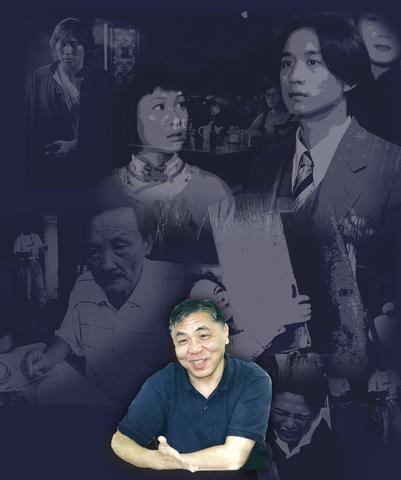
GRAPHIC COURTESY OF CMPC AND ZOOM HUNT INTERNATIONAL
Hsu said his love for drama was purely a matter of chance. Born into a family of intellectuals, his older brother Hsu Li-teh (
Even when he began to work as a low-level official at the Government Information Office (新聞局), he never stopped writing scripts and submitted them at random to TV companies, he said. "I often visited the Motion Picture department of the GIO because I love watching films, and I often criticized the censorship system at the Motion Picture department," Hsu said.
Such enthusiasm won him the post of curator at the Chinese Taipei Film Archive (
Hsu's next post at the CMPC allowed him to become more involved in nurturing young Taiwanese film talents. During this period, from 1990 to 1997, Taiwanese films began sweeping up awards at major festivals, including Berlin and Cannes.
This was also the period that Hsu produced Pushing Hands, The Wedding Banquet and Eat Drink Man Woman (
"That was a period when Taiwanese films shifted their focus to realism and humanism. But such a style also tends to play down, if not outright ignore, success and stardom, which is a pity to an already weak industry," Hsu said. The larger reach of films and the need to have them polished makes the role of the producer more and more important, he added.
Hsu's devotion to his work took a toll on his health to the point that five years ago a serious stroke almost ended his life. Instead, it left him with a limp and fragile health. But his love for films and drama remains unscathed.
He set up his own production company Zoom Hunt International in 1997, which has already released six films and five TV dramas, including April Rhapsody and Fleeting by Night, and of course the most popular Crouching Tiger, Hidden Dragon.
"Actually Ang Lee himself put in a lot into the production of the film, especially during the shooting in China," he said. "I mainly helped him at the pre-production stage." For Crouching Tiger, Hsu recommended scriptwriter Wang Hui-ling (
Of course, because of the film's record-breaking success in the US, there is little worry about fundraising for Lee in the future.
"My new task is to talk [Lee] into making a sequel -- in fact a preceding story according to the novel -- to Crouching Tiger, Hidden Dragon," said Hsu.
"The novel is at my bedside every day. And I will make all kinds of preparation for the sequel and then begin nagging him."

Most heroes are remembered for the battles they fought. Taiwan’s Black Bat Squadron is remembered for flying into Chinese airspace 838 times between 1953 and 1967, and for the 148 men whose sacrifice bought the intelligence that kept Taiwan secure. Two-thirds of the squadron died carrying out missions most people wouldn’t learn about for another 40 years. The squadron lost 15 aircraft and 148 crew members over those 14 years, making it the deadliest unit in Taiwan’s military history by casualty rate. They flew at night, often at low altitudes, straight into some of the most heavily defended airspace in Asia.

Taiwan’s democracy is at risk. Be very alarmed. This is not a drill. The current constitutional crisis progressed slowly, then suddenly. Political tensions, partisan hostility and emotions are all running high right when cool heads and calm negotiation are most needed. Oxford defines brinkmanship as: “The art or practice of pursuing a dangerous policy to the limits of safety before stopping, especially in politics.” It says the term comes from a quote from a 1956 Cold War interview with then-American Secretary of State John Foster Dulles, when he said: ‘The ability to get to the verge without getting into the war is

Beijing’s ironic, abusive tantrums aimed at Japan since Japanese Prime Minister Sanae Takaichi publicly stated that a Taiwan contingency would be an existential crisis for Japan, have revealed for all the world to see that the People’s Republic of China (PRC) lusts after Okinawa. We all owe Takaichi a debt of thanks for getting the PRC to make that public. The PRC and its netizens, taking their cue from the Chinese Communist Party (CCP), are presenting Okinawa by mirroring the claims about Taiwan. Official PRC propaganda organs began to wax lyrical about Okinawa’s “unsettled status” beginning last month. A Global

Like much in the world today, theater has experienced major disruptions over the six years since COVID-19. The pandemic, the war in Ukraine and social media have created a new normal of geopolitical and information uncertainty, and the performing arts are not immune to these effects. “Ten years ago people wanted to come to the theater to engage with important issues, but now the Internet allows them to engage with those issues powerfully and immediately,” said Faith Tan, programming director of the Esplanade in Singapore, speaking last week in Japan. “One reaction to unpredictability has been a renewed emphasis on